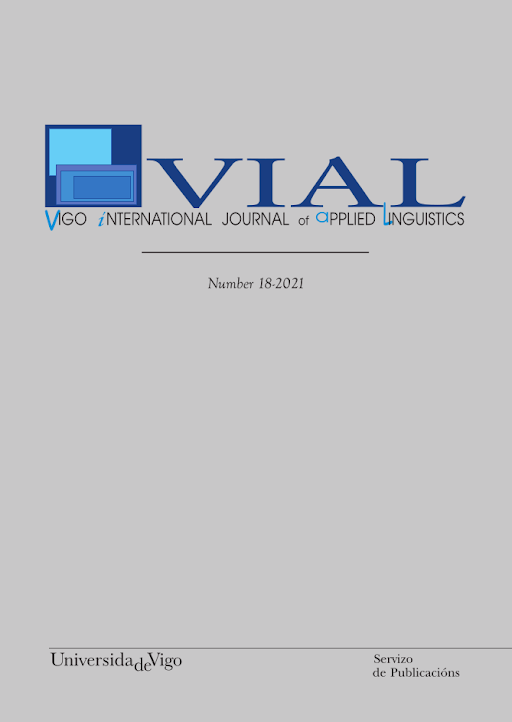“When being specific is not enough”: Discrepancies between L2 learners’ perception of definiteness and its linguistic definition
DOI:
https://doi.org/10.35869/vial.v0i18.3367Keywords:
English articles, specificity, definiteness, article errors, L2 learnersAbstract
This paper explores the sources of difficulties that second language (L2) learners encounter when using English articles. Eighty-four Korean college students completed a forced-choice elicitation task before and after receiving instruction on article use and provided written accounts of article choices. The analysis of the task performance and written accounts indicated the participants’ noticeable tendency to prioritize specificity over definiteness, resulting in the overuse of the with specific indefinites. Not infrequently, the participants estimated a “nonspecificity hierarchy” for nonspecific definites, often leading to the infelicitous use of a(n). The overuse of the with modified noun phrases suggests that L2 learners attempt to construe semantic context (i.e., ±definite) on the basis of the syntactic structure. Furthermore, the participants’ correct use of a(n) for singular count indefinites sometimes stemmed from assuming the number of a target noun to be single rather than considering its multiple existence and, thus, its indefinite nature. These findings underline the necessity of teaching the specificity feature to indicate to learners that (1) English articles are prototypical realizations of encoding definiteness, which requires the mutual identifiability of a unique referent, and (2) specificity, which presupposes identifiability assumed by the writer/speaker alone, is not marked by articles in English.
Downloads
Downloads
Published
Issue
Section
License
Revistas_UVigo es el portal de publicación en acceso abierto de las revistas de la Universidade de Vigo. La puesta a disposición y comunicación pública de las obras en el portal se efectúa bajo licencias Creative Commons (CC).
Para cuestiones de responsabilidades, propiedad intelectual y protección de datos consulte el aviso legal de la Universidade de Vigo.



